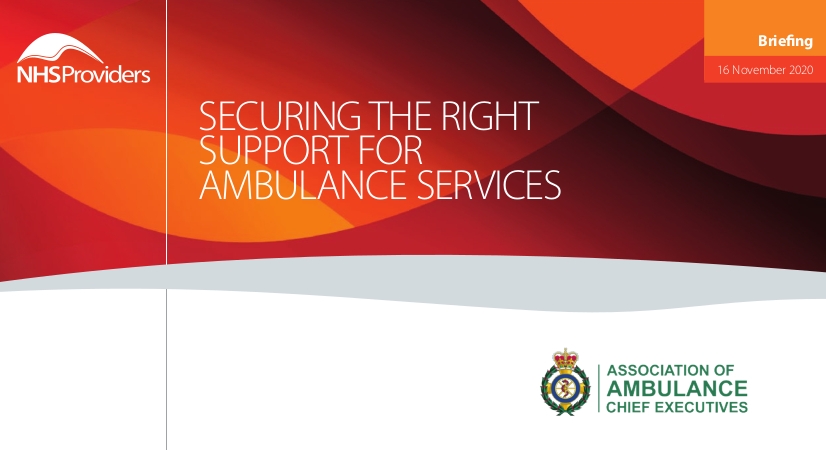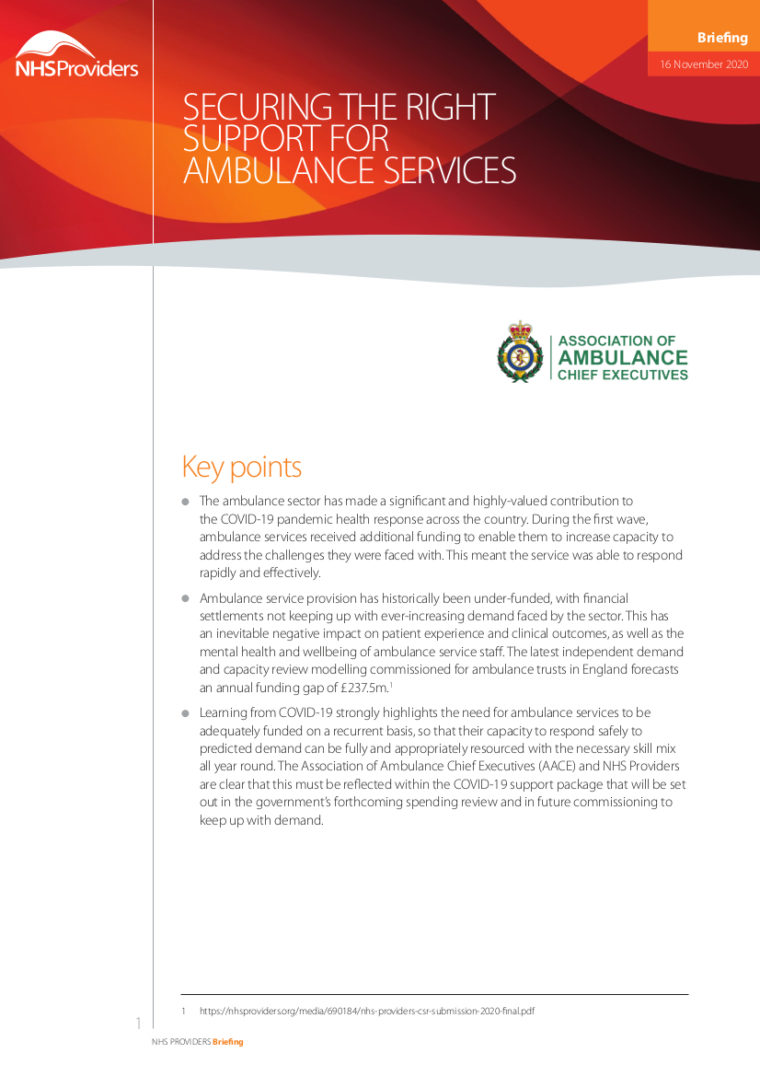
The Association of Ambulance Chief Executives also supports call for fundamental review of how ambulance services are resourced and commissioned in the long-term to bridge gap of £237.5m.
The Association of Ambulance Chief Executives (AACE) has backed today’s call by the national NHS Providers organisation asking the Government to ensure that additional ambulance service funding becomes a significant part of the planned Covid support package to be announced in the spending review on 25 November 2020.
NHS Providers has also emphasised how the pandemic has highlighted that ambulance trusts are struggling to manage a huge mismatch in what they are expected to do and the funding they are given each year to do it, arguing that a shortfall of £237.5m exists, a situation that requires a fundamental review of how the NHS ambulance sector is resourced and commissioned.
The first wave of the pandemic caused significant and complicated human resource issues for individual ambulance trusts, which had to re-deploy key staff onto the frontline, resulting in operational and strategic pressures arising elsewhere in each service.
AACE believes the second wave of the pandemic is already leading to a repeat of these additional pressures, which could be much worse than the first wave if significant additional funding is not allocated.
Speaking on behalf of AACE, Helen Ray, Chief Executive of North East Ambulance Service and the ambulance service chief executive representative on the NHS Providers Board, said:
Ambulance staff have been at the frontline of care during the current pandemic, which has resulted in our services being busier than ever. But it is telling that ambulance trusts saw performance against targets improve in May to July this year, at a time when the service received additional funding to manage demand caused by the first wave of Covid-19.
Now we are in the middle of a second wave, with our normal winter pressures on top, if additional funding is not allocated to the sector in the Government spending review on 25th November, there is a very real risk that there will be an unnecessary detrimental impact upon patient care as well as the mental health and wellbeing of the ambulance service workforce.
For many years now, funding for NHS ambulance services has not kept pace with the ever-increasing demand faced by the sector, and what we have learned during the current pandemic is that ambulance services need to be adequately funded on a recurrent basis, so that the capacity to respond safely to predicted demand can be fully and appropriately resourced with the necessary skill mix all year round.
Using sophisticated demand and capacity reviews, ambulance trusts have calculated that their funding gap – if high performance standards are to be maintained – cumulatively totals £237.5m.
Helen added;
In short, we are now at a pivotal point where a fundamental review of how ambulance services are resourced and commissioned in the long-term is needed if we are to continue to deliver the high quality care that people need and expect when they dial 999.

